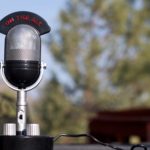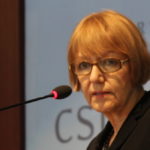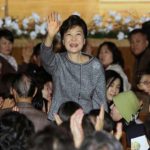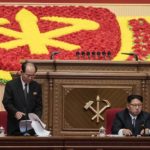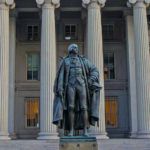October 7, 2021, by Min-Jung Kim—
On January 22, 2021, a controversial bill was proposed by the Ministry of Unification of South Korea. If radio broadcasting to North Korea is subjected as indicated, the bill can have a far greater impact in the United States than the Anti-Leaflet Law has, as most of the radio broadcasting activities to North Korea by South Korean nongovernmental organizations (NGOs) are funded by the U.S. government or U.S. citizens.
December 4, 2017, by Marie DuMond—
South Korea and the United States generally share similar estimations of China’s and Japan’s blind spots in a unification scenario. Both believe that Beijing has the most prominent blind spot on domestic stabilization and refugees, and that Japan shares similar concerns, suggesting that all four powers could prioritize law and order in a unification scenario.
November 13, 2017, by Marie DuMond—
Beyond Parallel’s first-ever survey of expert assessments on unification-related issues indicate South Korea and the United States share the common view that domestic stabilization and unification costs constitute the most critical unification blind spots with a high degree of concern but low levels of knowledge for both countries.
October 18, 2017, by Marie DuMond—
Domestic stabilization is the most critical issue with unification for South Korean officials and experts, registering the highest composite score (i.e., high level of concern and low level of knowledge). This means civil-military relations, law and order, and stability in the North represent the issues for which Koreans see great consequences for national interests, but for which they have little prior knowledge or understanding. Hence, it is the greatest potential “blind spot” of unification. Costs related to unification rank a close second for South Koreans, followed by refugees, nuclear weapons, and human rights.
February 15, 2017—
In this oral history, Ms. Sonja Biserko discusses her experience in gathering evidence and writing the legacy of the commission activities; and her perspective on the future of human rights in North Korea... The Commission of Inquiry (COI) on Human Rights in the Democratic People’s Republic of Korea…
November 4, 2016, by Evan Ramstad—
President Park's mistakes are far less harmful than those of the men who came before her... In 2011, as she geared up for the 2012 presidential election in South Korea, Park Geun-hye told aides that she would like to reach out to some of the people her father fought and…
August 23, 2016—
Developing the UN Commission of Inquiry on Human Rights in North Korea Report... The United Nations Human Rights Council established the Commission of Inquiry (COI) on Human Rights in the Democratic People’s Republic of Korea (DPRK) on March 21, 2013. The mission of the Commission was to investigate…
July 6, 2016, by Lisa Collins and Victor Cha—
The U.S. Department of State’s “Report on Serious Human Rights Abuses or Censorship in North Korea” submitted to the U.S. Congress today, July 6, 2016 in accordance with North Korea Sanctions and Policy Enhancement Act of 2016 (Public Law 114-112) lists North Korean leader Kim Jong-un as responsible for human rights abuses.
June 1, 2016, by Lisa Collins and Victor Cha—
The Department of the Treasury’s Notice of Finding published on June 2, 2016 designates North Korea for the first time as a jurisdiction of “primary money laundering concern” under Section 311 of the USA PATRIOT Act... The Department of the Treasury's Notice of Finding published on June 2, 2016 designates North…
April 8, 2016—
A survey study of 233 of the United States’ top Asia/Korea experts, government officials, scholars, and opinion leaders found that domestic stabilization, not nuclear weapons, ranks as the #1 issue for the U.S. with unification (i.e., highest composite score in the entire survey in terms of most acute lack of knowledge/most acute concern for U.S. interests). The top four blind spots for the U.S.: 1) domestic stabilization; 2) nuclear weapons; 3) economic development; 4) cost.
